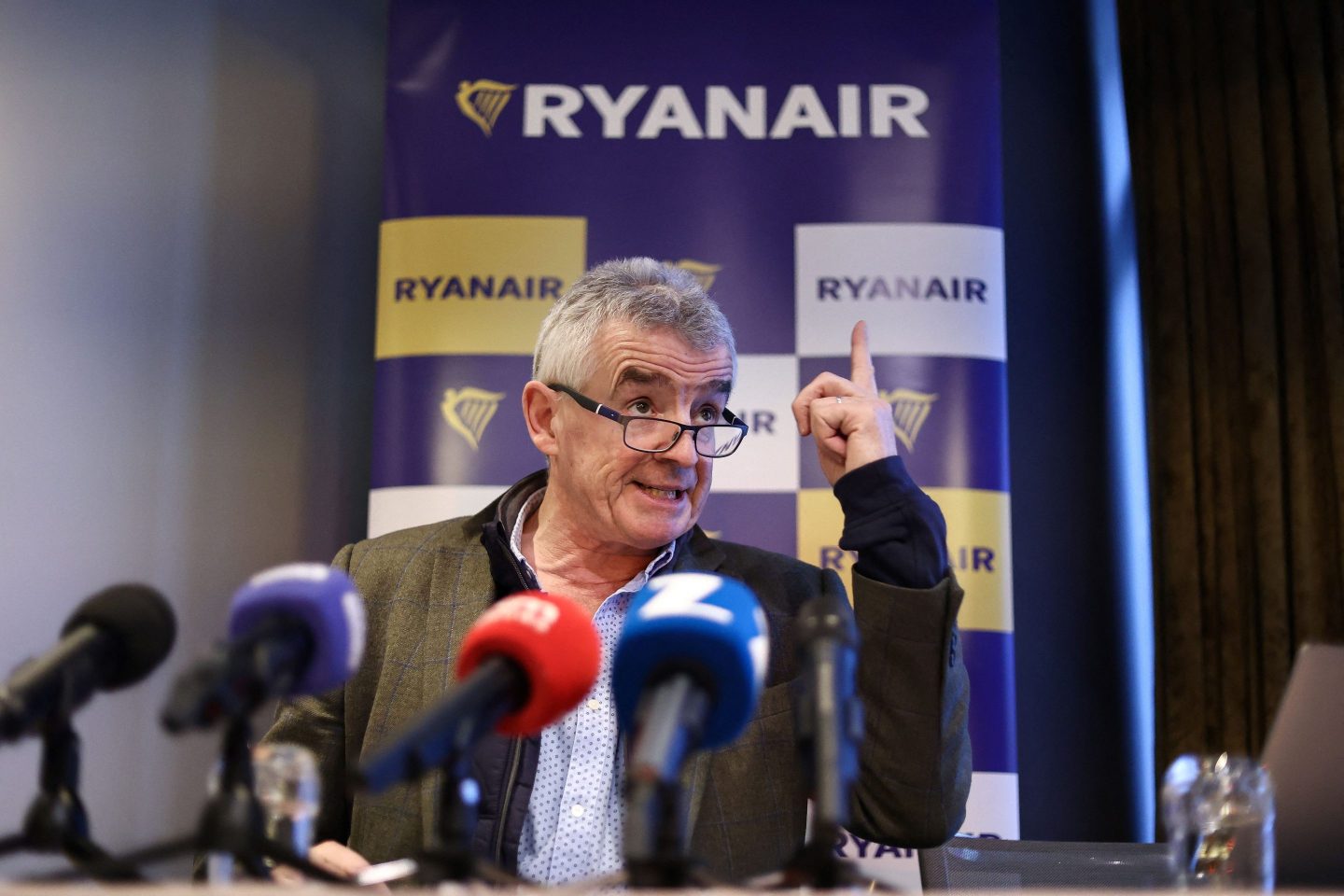Even the climate crisis isn’t enough to put money-savvy travelers off budget-friendly flights. At least, that’s according to the CEO of Europe’s largest airline group.
For years the aviation industry has been experimenting with new ways to reduce its carbon footprint, from using cleaner fuel to power aircraft, to offering “green fares” to its fliers.
And although such moves might be appreciated by passengers, Ryanair CEO Michael O’Leary insists customers would “absolutely not” stop flying on account of environmental fears. On top of that, the Irish boss added activists should be directing their energy elsewhere if they want to bring down commercial emissions.
“I always feel somewhat aggrieved that the airlines are the poster child for climate change, when airlines account for 2% of CO2 emissions,” O’Leary said in an interview with The Guardian. “Shipping accounts for 5%, but nobody ever posts a picture of a boat chugging out of a harbor and goes, ‘There you go: The globe is warming up.’”
O’Leary, who’s often seen as outspoken, has been at the receiving end of climate activists’ ire in the past. In September, they pelted the Ryanair chief’s face with cream pies amid a protest of his own at the European Commission headquarters in Belgium. The activists told him: “Stop the pollution of the … planes.”
While O’Leary took the incident in good humor by inviting passengers to Ireland “where the cream is better,” it highlighted how some consumers may be thinking about airlines’ environmental impact.
Aviation’s share of global emissions had been rising until the COVID-19 pandemic ground travel to a halt. Activity has since picked up—2023 marked a year of strong profits for several airlines, including for Ryanair. Now, airlines are navigating a tricky balance between catering to the climate-aware consumer, contributing to the industry’s net-zero goals, and balancing resurgent travel demand.
SAF is a ‘wheeze,’ but there may be other alternatives
Sustainable aviation fuel (SAF) has recently emerged as an alternative to more polluting fossil fuel. However, SAF is far from achieving the desired scale, O’Leary said. In fact, he describes SAF as a “wheeze” that may not necessarily be the answer to the aviation industry’s emissions problem.
“You want everybody running around collecting f—ing cooking oil? There isn’t enough cooking oil in the world to power more than one day’s aviation,” O’Leary said. The CEO of German airline Lufthansa has echoed similar views, saying it could take half the nation’s electricity supply to provide enough green fuel to meet its needs.
Ryanair has committed to powering 12.5% of its flights with SAF by 2030. However O’Leary still says he has “no idea that they’ll be able to make those kinds of volumes.” SAF can be expensive to produce given the amount of energy it takes to make it in large quantities, which in turn could hike airfare. But over time, cleaner fuels could make a significant difference in cutting CO2 emissions.
Although SAF may not be immediately scalable, O’Leary said he has no doubt that decarbonizing is imperative and that the sector will move in the direction of achieving that.
“I am generally a believer that technology and human ingenuity will overcome the concerns about climate change. I think we do have to decarbonize, and I have absolutely no doubt that we will not decarbonize because we tax people more,” he told The Guardian.
He suggests there are other ways to cut fuel consumption by up to 25%—such as by curbing air traffic control delays and inefficient routing. In August, a technical fault in the U.K.’s ATC system disrupted travel for an estimated 250,000 people owing to delayed or canceled flights at some of Britain’s busiest airports. At the time, O’Leary dismissed the air traffic body’s report explaining the reasons for the glitch as “rubbish” and “inaccurate.”
The CEO believes that the adoption of electric vehicles could also potentially play a key role in cutting fuel use.
“If you can move that to an electric fleet … It’s the only way we’re going to get anywhere close to net zero by 2050,” the Irish low-cost airline’s chief said.
Ryanair didn’t immediately return Fortune’s request for comment.













